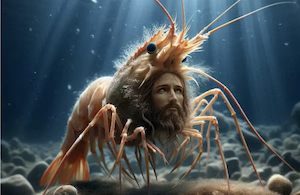The Dead Internet Theory is a conspiracy hypothesis that claims the internet, as we know it, is no longer a place of genuine human interaction. According to this theory, a significant portion of online content, including social media posts, comments, articles, and even videos, is created not by real people, but by bots and artificial intelligence algorithms.
This idea first emerged on the forum Agora Road's Macintosh Cafe in 2021. Proponents of the theory believe that the internet 'died' around 2016 and has since become a vast, government- and corporation-controlled space filled with synthetic content that mimics human activity.
## Arguments of Proponents
Proponents of the Dead Internet Theory cite several key pieces of evidence:
- Ubiquity of bots and trolls: The increasing number of automated accounts that post spam, manipulate public opinion, or generate nonsensical comments. For example, you may have noticed how countless accounts with identical profiles and random names leave similar comments under videos.
- Unusual social media activity: Observations of abnormally fast reactions to posts (e.g., thousands of likes in seconds) or uniform, templated comments that seem machine-generated. A prime example is the 'Shrimp Jesus' bot that commented on Reddit. It gained popularity quickly, but it was later revealed to be a bot that simply generated comments with random images.
- Decline in content quality: Many people note that Google search results and social media feeds are filled with low-quality, meaningless articles, rewritten with AI, that contain no new information.
- Lack of a 'human' spirit: The feeling that the internet has lost the spontaneity and creative chaos that characterized it in its early years.
## Arguments of Critics and Reality
While the Dead Internet Theory is attention-grabbing, it is primarily a conspiracy theory, and its critics have strong counterarguments:
- Scale and complexity of the internet: The internet is too vast and decentralized a system to be controlled and filled with content solely by bots. Billions of people create new, unique content every day.
- Increased moderation: Social networks and search engines are constantly improving their algorithms to combat bots, spam, and low-quality content. While this doesn't solve the problem completely, it curbs its spread.
- Evolution of user behavior: The changing nature of online communication (the shift to short-form content, memes, videos) is a natural evolution, not the result of AI. What seems 'artificial' may simply be the result of a mass standardization of behavior.
- Technological progress: The emergence of powerful tools like ChatGPT and DALL-E has made content creation significantly easier, and this naturally leads to an increase in its volume. OpenAI founder Sam Altman himself acknowledged this problem, stating that in the future, most content will be generated by AI, which reinforces the feeling of a 'dead' internet.
## Conclusion
The Dead Internet Theory is more of a metaphor for expressing concern about the future of the web. It raises important questions about trust in information, the impact of technology on society, and the risk of losing human authenticity in the digital age.
While the internet is not 'dead' in the literal sense, it has certainly changed. Bots and automation have become an integral part of the online landscape. The task for every user is to develop critical thinking and the ability to distinguish human-generated content from that which is machine-generated.
